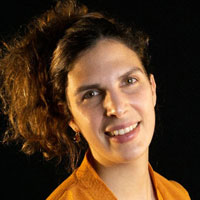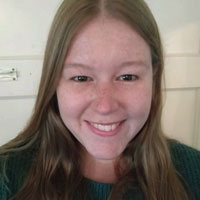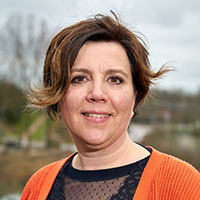 |
Prof. dr. Renate de Groot, Open Universiteit
Expertise
- health sciences
- neuropsychology
- neuroscience
- educational sciences
- conditions for learning
- mental wellbeing
- brain and learning
- children, adolescents, adults
Research
I am a full professor Biopsychology of Learning at the faculty of Educational Sciences of the Open Universiteit. My scientific interest is centered around the biopsychological determinants of learning, development, and cognition in lifelong perspective to foster efficient, effective, and enjoyable learning. I am chair of the department Conditions for Life Long Learning and have in that capacity the daily leadership, I chair the bi-monthly programme group, supervise PhD-students (>30), and I am in charge of project coordination among which this 'What’s BOThering you?'-project. In addition I am board member of the ethical assessment committee as well as the committee on scientific integrity.
Contact: renate.degroot@ou.nl
LinkedIn profile Renate de Groot
|
 |
Prof. dr. Gert-Jan de Bruijn, Universiteit Antwerpen
Expertise
- artificial intelligence
- human-computer interactions
- mental health
Research
My research centres around the application of AI for (strategic) communication purposes, both for human-computer interactions (conversational agents, virtual and augmented reality, and sensor-based wearables) and for human-human interactions. This research deals with communication issues related to infectious diseases (antimicrobial resistance), non-communicable diseases (diabetes, substance use, sexual health, etc), and mental health (anxiety and depression)
My research is/has been sponsored by various consortium grants totalling > 24 million EUR. I am currently supervising 13 PhD candidates and one post-doc.
Contact: gert-jan.debruijn@uantwerpen.be
|
 |
Dr. Johan Lataster, Open Universiteit
Expertise
- mental health and well-being
- self-determination theory
- network theory
- EMA
- coaching
Research
I am an associate professor at the Department of Lifespan Psychology, Open Universiteit. My research includes various topics within the field of mental health and well-being, including self-determination theory and network theory. I have published in various journals, books, and professional literature, and regularly present at conferences and symposia. In addition, I have contributed as co-promotor to multiple PhD projects and have experience obtaining funding for research projects as main and co-applicant.
Contact: johan.lataster@ou.nl
LinkedIn profile Johan Lataster
|
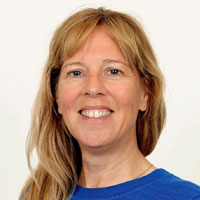 |
Prof. dr. Nele Jacobs, Open Universiteit
Expertise
- positive mental health (well-being)
- affect
- personal growth
- EMA
Research
I am the head of the Department of Lifespan Psychology, Open Universiteit. My mission is to promote positive mental health across the lifespan. I successfully supervised several (PhD) research projects and have published more than 200 peer-reviewed papers. I have also contributed to several books in the fields of (positive) psychology and psychiatry, as well as to professional literature in these areas. I am regularly invited to speak at national and international conferences.
Contact: nele.jacobs@ou.nl
LinkedIn profile Nele Jacobs
|
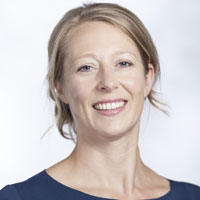 |
Prof. dr. Marjolijn Antheunis, Tilburg University
Expertise
- digital communication technology
- interpersonal communication
- mental health
Research
I am a professor of Communication and Technology at Tilburg University. I obtained my PhD from the University of Amsterdam in 2009 and have worked at Tilburg University since 2010 in the Communication and Cognition department. My research focuses on the impact of digital communication technologies on interpersonal communication, in both the context of social life and the context of healthcare. For example, I worked on various research projects into the possibilities of using social chatbots in mental health care. Further, I am vice dean of research at the Tilburg School of Humanities and Digital Sciences.
Contact: m.l.antheunis@tilburguniversity.edu
LinkedIn profile Marjolijn Antheunis
|
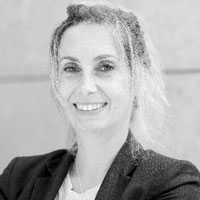 |
Dr. Emmelyn Croes, Tilburg University
Expertise
- interpersonal communication
- human-chatbot communication
- influencer marketing
Research
My research focuses on the influence of various forms of technology on, for instance, friendship formation. During my doctoral studies, I thoroughly investigated the effects of contemporary communication technologies on the development and maintenance of social relationships. After my doctoral studies, I also started researching interactions between humans and social chatbots. I conducted several studies focusing on how people communicate with a social chatbot and whether they can become friends with a chatbot. This included important social processes such as self-disclosure, intimacy, and empathy, which play a significant role in interactions between humans and chatbots. This research has shown that people disclose intimate information to a chatbot, but also that self-disclosure only improves well-being when a chatbot is empathetic and shows perceived understanding. Additionally, I am also a member of the research group Center for Social Influence, where I investigate the motives young people have for following social influencers and how influencers can encourage young people to engage in healthy behaviours.
Contact: e.a.j.croes@tilburguniversity.edu
LinkedIn profile Emmelyn Croes
|
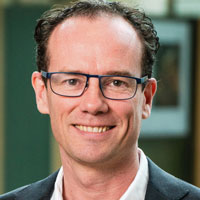 |
Prof. dr. Tibor Bosse, Radboud Universiteit
Expertise
- social artificial intelligence
- human-machine communication
- intelligent agents
- chatbots
Research
I conduct interdisciplinary research in the intersection of Computer Science and the Social Sciences. In particular, I combine insights from these disciplines in order to design, implement and evaluate ‘Social AI’ systems, i.e. intelligent computer systems that have the ability to engage in natural social interactions with human beings. Such systems include, among others, social robots, virtual agents and chatbots. From a technical perspective, I develop new algorithms to endow social AI systems with more human-like behaviour (e.g., using techniques such as emotion recognition and natural language processing). From a social perspective, I study the psychological effects of interacting with social AI systems on people’s perceptions and behaviour. Finally, from an applied perspective, I am interested in the use of social AI systems for various practical purposes, including social skills training and behaviour change.
Contact: tibor.bosse@ru.nl
LinkedIn profile Tibor Bosse
|
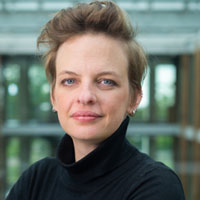 |
Dr. Barbara Muller, Radboud Universiteit
Expertise
- communication science
- human-machine interactions
Research
Next to human/non-human interactions, my research interests focus on the promotion of sustainability behaviour via different social influence techniques and the use of new technologies and social media. Furthermore, I investigate how resistance to change can be avoided. I am especially interested in the development and neural correlates of these phenomena, both in young children, adults, and elderly.
Contact: barbara.muller@ru.nl
LinkedIn profile Barbara Muller
|
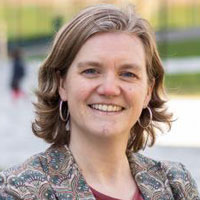 |
Prof. dr. Mariska Kleemans, Radboud Universiteit
Expertise
- youth & news
- news literacy
- higher education
- student well-being
Research
As director of education of the Faculty of Social Sciences at Radboud University, I deal with issues in higher education on a daily basis. One of my main responsibilities as director of education is to ensure that our faculty is a pleasant place to study for our students. I do this by striving to reduce study and performance pressure among students, for example through the development and implementation of personal professional development courses in our programs and by updating the assessment policy at our faculty. I am further responsible for several initiatives that aim to contribute to student well-being within our faculty (such as a buddy project and funding for projects that contribute to student well-being). By participating in the 'What's BOThering You?' project, I have the opportunity to work on the topic from a research perspective as well. As a professor of Youth, News & Education, I have extensive experience with research among young people.
Contact: mariska.kleemans@ru.nl
LinkedIn profile Mariska Kleemans
|
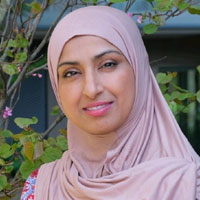 |
Dr. Fakhra Jabeen, Radboud University
Expertise
- intelligent agents
- chatbots
- computational artificial intelligence
- machine learning
- natural language processing
Research
I am an interdisciplinary researcher, who works on the intersection of Computer Science, Psychological and Social Sciences. I mainly focus on analysing human behaviours and developing applications for human-computer interactions (like conversational agents or chatbots) based on computational AI and data analytics. I study psychological and social perspectives of how human-based components can interact together with an AI system to improve people’s perception and behaviour.
Contact: fakhra.jabeen@ru.nl
LinkedIn profile Fakhra Jabeen
|










